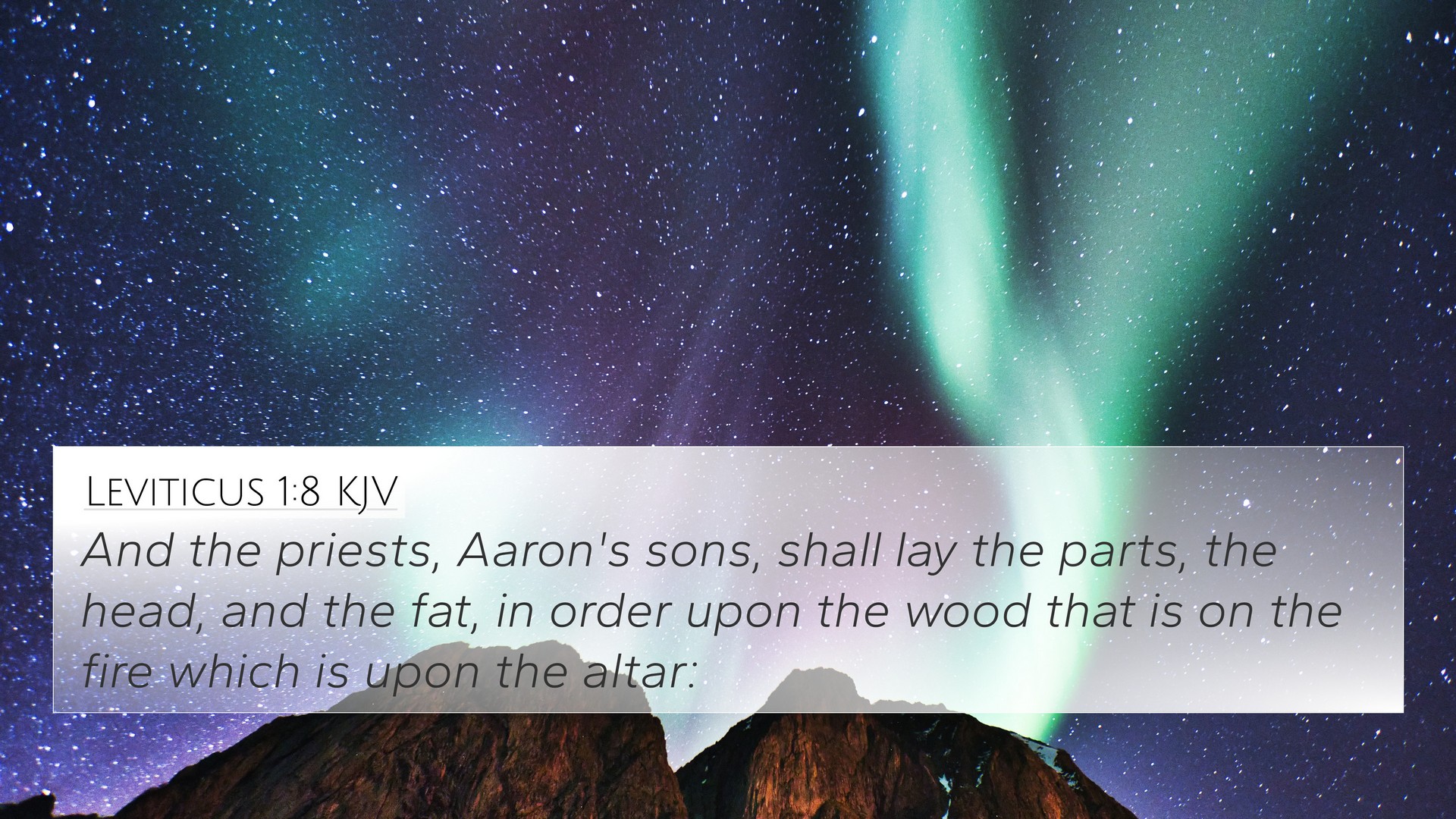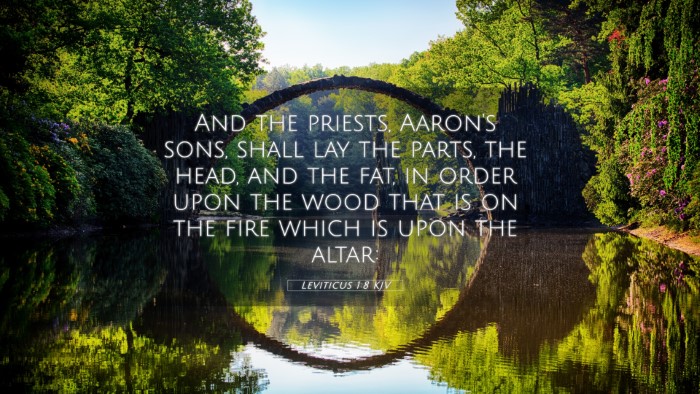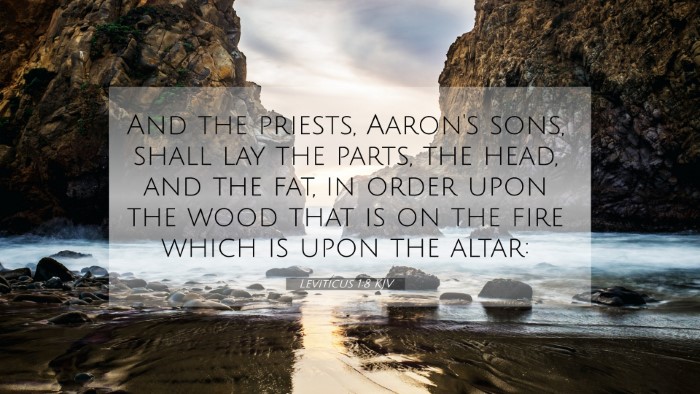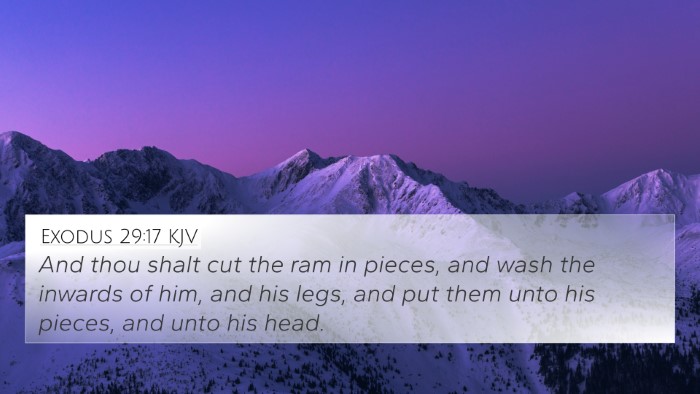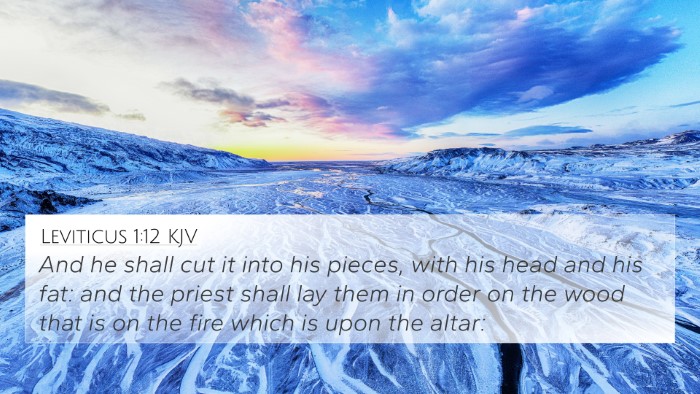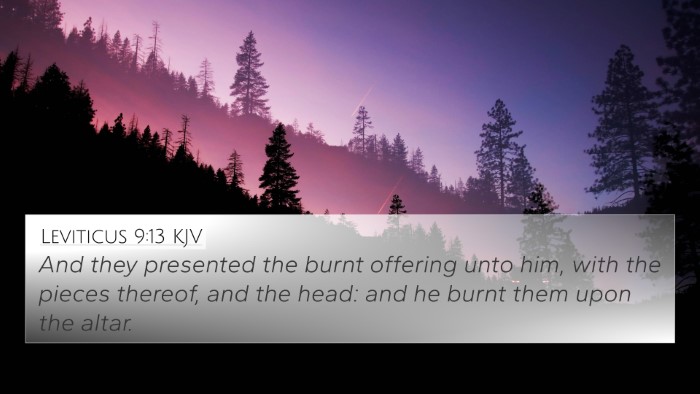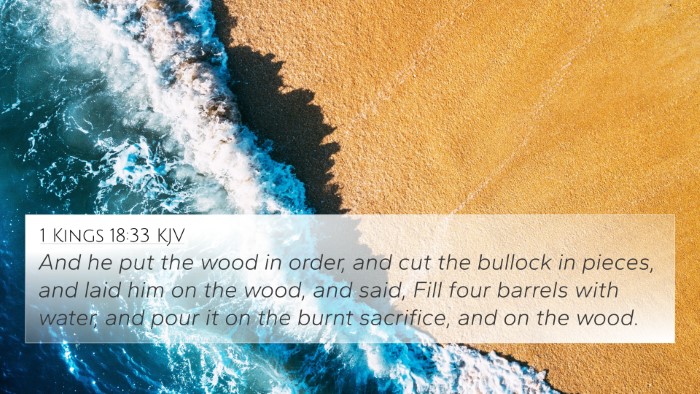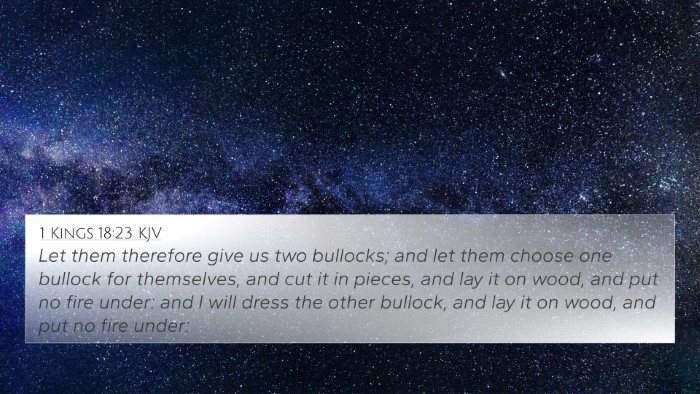Understanding Leviticus 1:8
Leviticus 1:8 states, "And the priests, Aaron's sons, shall put fire upon the altar, and lay the wood in order upon the fire." This verse is part of the instructions regarding animal offerings and sacrifices, emphasizing the critical role of the priests in the sacrificial system of ancient Israel.
Commentary Insights
- Matthew Henry: Henry emphasizes the importance of the priests and their duties, stating that they not only prepare the offerings but also ensure that the fire is continually burning, signifying the ongoing relationship between God and His people through sacrifices.
- Albert Barnes: Barnes points to the orderliness of the sacrificial process, indicating that the arrangement of the wood and fire represents a deeper spiritual truth about approaching God with reverence and preparation. The priests are mediators who facilitate worship and atonement.
- Adam Clarke: Clarke notes the significance of the fire in the altar sacrifices. He reflects on the symbolism of fire representing God's presence and acceptance, highlighting the necessity for divine approval in the sacrifice process.
Bible Verse Cross-References
- Exodus 30:7-8: "And Aaron shall burn on it sweet incense every morning... The fire on the altar shall be kept burning on it." This passage connects the duties of the priests concerning the altar and the continual need for sacrifices and incense, symbolizing ongoing devotion.
- Leviticus 6:12-13: “And the fire upon the altar shall be burning in it; it shall not be put out.” This emphasizes the importance of maintaining the fire, indicating the necessity of constant worship and dedication to God.
- Hebrews 9:22: “And almost all things are by the law purged with blood; and without shedding of blood is no remission.” This verse articulates the significance of sacrifices and the shedding of blood for atonement, linking the Levitical practices with New Testament teachings on redemption.
- Romans 12:1: “I beseech you therefore, brethren, by the mercies of God, that ye present your bodies a living sacrifice, holy, acceptable unto God.” This verse correlates with the sacrificial system, illustrating how believers are called to offer themselves to God as living sacrifices.
- 1 Peter 2:5: “Ye also, as lively stones, are built up a spiritual house, an holy priesthood, to offer up spiritual sacrifices, acceptable to God by Jesus Christ.” This connects with the idea of offering, showing the continuity of the sacrificial principle from the Old Testament to the New Testament where Jesus fulfills the ultimate sacrifice.
- Malachi 1:10: “Who is there even among you that would shut the doors for nought? Neither do ye kindle fire on mine altar for nought.” Malachi addresses the heart behind the sacrifices, indicating that the act of worship must be genuine and not merely ritualistic.
- Luke 12:49: “I am come to send fire on the earth; and what will I, if it be already kindled?” Here, Jesus’s proclamation of fire symbolizes purification and the Holy Spirit's work, tying back to the fire used in the Levitical offerings.
Thematic Connections between Bible Verses
The theme of sacrifice and priesthood connects Leviticus 1:8 to several New Testament teachings. The notions of spiritual sacrifices, the role of priests, and the significance of fire all function as threads weaving through Scripture, creating a tapestry showcasing God's redemptive plan through sacrifices and the ultimate sacrifice in Christ.
This verse illustrates how carefully outlined rituals in the Old Testament inform our understanding of New Testament theology. The consistent imagery of fire, purity, and sacrifice bridges connections between Old and New Testament narratives, affirming that the sacrificial system was a foretelling of Christ’s ultimate offering.
Tools for Bible Cross-Referencing
Using a Bible concordance or a Bible cross-reference guide can help identify verses that connect with Leviticus 1:8. Engaging in cross-reference Bible study allows readers to deeply understand the links between various Scriptures, enhancing their theological insights.
Additionally, Bible cross-reference systems enable readers to streamline their study and explore how different texts inform and dialogue with each other. Recognizing these connections enriches one's grasp of the biblical narrative and the overarching themes present throughout Scripture.
Conclusion
Leviticus 1:8 serves as a vital part of the sacrificial system in the Pentateuch, emphasizing the priestly duties and their importance in maintaining a relationship with God. Through the lens of various commentaries, we discern not only the practical aspects of sacrifices but also the rich theological implications they bear on New Testament teaching. Understanding these connections helps believers appreciate the continuity of God's revelation from the Old Testament to the New Testament, fostering a deeper appreciation for the Scriptures as a whole.
